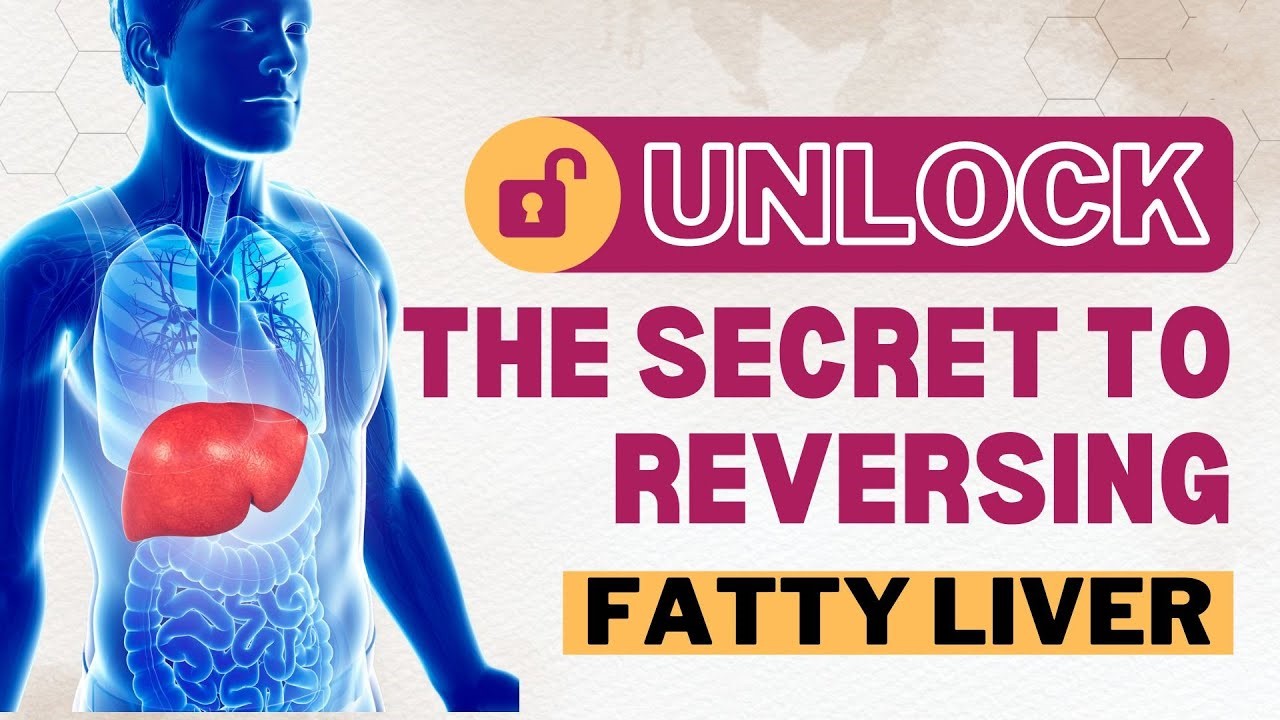
Reclaiming Your Health: A Comprehensive Guide to Reversing Fatty Liver Disease
Living with Fatty Liver Disease: Practical Strategies for Daily Life
By: Saika J
Fatty liver disease, a condition marked by excess fat buildup in the liver cells, has become a growing concern worldwide. The good news? This condition is often reversible with a dedicated and personalized approach. This guide delves into the science behind fatty liver disease and equips you with the knowledge and actionable steps to reclaim your liver health.
Understanding Fatty Liver Disease: A Silent Threat
Our livers are remarkable organs, processing nutrients from food, filtering toxins from the bloodstream, and producing essential proteins for health. However, excessive fat accumulation in the liver disrupts these vital functions, potentially leading to inflammation, scarring (fibrosis), and eventually, cirrhosis, a severe and irreversible condition.
Fatty liver disease often progresses silently, with minimal symptoms in the early stages. However, as the condition worsens, fatigue, upper right abdominal pain, and unexplained weight loss may present themselves. Left untreated, fatty liver disease can significantly impact other bodily systems, increasing the risk of heart disease, diabetes, and even liver cancer.
The Power of Change: Lifestyle Modifications for a Healthy Liver
The key to reversing fatty liver disease lies in taking control of your lifestyle. Here, we explore the essential steps that can pave the way for a healthier liver and a more vibrant you:
1. Embracing a Nutritious Plate: Fueling Your Body for Recovery
-
A Rainbow on Your Plate: Fruits and vegetables are brimming with antioxidants, essential for combating inflammation and protecting your liver cells. Incorporate a vibrant variety of fruits and vegetables throughout the day, aiming for at least five servings daily. Explore different colors and textures; leafy greens, brightly colored berries, cruciferous vegetables like broccoli and cauliflower, and antioxidant-rich fruits like oranges and berries are excellent choices.
-
Fiber Fantastic: Dietary fiber plays a critical role in digestion and helps regulate blood sugar levels. Whole grains like brown rice, quinoa, and oats, along with legumes such as lentils and beans, are excellent sources of fiber.
-
Lean Protein Powerhouse: Protein is essential for building and repairing tissues, including those in your liver. Opt for lean protein sources like grilled chicken and fish, skinless poultry, and beans.
-
Healthy Fats: Not all fats are created equal. While saturated and trans fats contribute to fatty liver disease, unsaturated fats, particularly omega-3 fatty acids, can actually be beneficial. Include healthy fats found in avocados, fatty fish like salmon and tuna, nuts and seeds (in moderation), and olive oil in your diet.
-
Saying No to Sugar and Refined Carbs: Added sugars and refined carbohydrates like white bread, pasta, and sugary drinks contribute to weight gain and disrupt blood sugar control. Limit these foods and opt for complex carbohydrates like whole grains that provide sustained energy.
2. Weight Management: A Stepping Stone to Liver Health
Even modest weight loss (around 5-10% of your body weight) can significantly improve your liver health. Losing weight gradually through a combination of healthy eating and regular exercise is key. Consult a registered dietitian or healthcare professional to create a personalized weight loss plan that is safe and sustainable for you.
3. Move Your Body: The Power of Exercise for Liver Health
Engaging in regular physical activity is crucial for combating fatty liver disease. Aerobic exercises such as brisk walking, jogging, swimming, cycling, or dancing are excellent choices. Aim for at least 30 minutes of moderate-intensity exercise most days of the week. Strength training can also be beneficial in building muscle mass, which helps promote healthy metabolism and weight management.
4. Essential Vitamins and Minerals: Nourishing Your Liver
Certain vitamins and minerals play a vital role in liver health.
- Vitamin D: Emerging research suggests that Vitamin D deficiency may be linked to an increased risk of fatty liver disease. Sunlight exposure is the primary source of Vitamin D, but consider adding a Vitamin D supplement after consulting your doctor, especially if you have limited sun exposure.
- B Vitamins: B vitamins are essential for various metabolic processes, including fat metabolism. Whole grains, legumes, leafy greens, and nuts are good sources of B vitamins.
- Potassium: Potassium helps regulate fluid balance within the body and can help reduce strain on the liver. Potassium-rich foods like bananas, spinach, and sweet potatoes are great choices.
- Betaine: This naturally occurring compound found in beets, spinach, and quinoa aids in liver detoxification.
5. Diabetes Management: A Crucial Piece of the Puzzle
If you have diabetes, effectively managing your blood sugar levels is critical for reversing fatty liver disease. Work closely with your doctor to develop a personalized diabetes management plan that may include medication, dietary adjustments, and exercise strategies.
6. Cholesterol Control: Keeping Your Heart and Liver Healthy
High cholesterol levels can exacerbate fatty liver disease and increase your risk of cardiovascular complications. Here are some strategies to keep your cholesterol in check:
-
Dietary Tweaks: Limit your intake of saturated and trans fats found in processed meats, fried foods, and full-fat dairy products. Choose lean protein sources and opt for healthy fats as mentioned earlier.
-
Exercise: Regular physical activity helps promote healthy cholesterol levels by increasing HDL (good) cholesterol and reducing LDL (bad) cholesterol.
-
Weight Management: Maintaining a healthy weight is crucial for regulating cholesterol levels.
-
Consider Medication: If lifestyle modifications alone aren’t enough, your doctor may prescribe cholesterol-lowering medications like statins.
7. Limiting Alcohol Consumption: Protecting Your Liver from Further Damage
Excessive alcohol consumption is a major contributor to fatty liver disease. Alcohol is metabolized by the liver, and excessive intake can overwhelm its processing capacity, leading to fat accumulation and cell damage.
-
Moderation is Key: For men, moderate alcohol consumption is defined as no more than two drinks per day, and for women, it’s one drink per day. A drink is equivalent to 12 ounces of beer, 5 ounces of wine, or 1.5 ounces of distilled spirits.
-
Consider Abstinence: If you find it difficult to moderate your alcohol intake, complete abstinence is the best course of action for your liver health.
8. Building a Support System: Embracing a Holistic Approach
Living with a chronic condition like fatty liver disease can be challenging. Here are some tips to build a strong support system:
-
Seek Support from Your Doctor: Maintain regular communication with your doctor to track your progress, discuss treatment options, and address any concerns you may have.
-
Consider Support Groups: Connecting with others who understand the challenges of fatty liver disease can be a source of motivation and emotional support. There are online or in-person support groups available.
-
Prioritize Mental Wellbeing: Stress can negatively impact your overall health, including your liver. Practice stress management techniques like meditation, yoga, or deep breathing exercises.
Beyond the core principles outlined above, here are some practical tips to integrate into your daily routine for optimal liver health:
-
Read Food Labels: Become a savvy label reader. Pay close attention to serving sizes, added sugars, saturated and trans fats, and sodium content when making food choices.
-
Plan Your Meals: Planning your meals and snacks in advance can help you make healthy choices and avoid unhealthy temptations when hunger strikes.
-
Portion Control: Practice mindful eating and utilize smaller plates to avoid overconsumption.
-
Stay Hydrated: Drinking plenty of water throughout the day helps your body function optimally and supports liver detoxification.
-
Find Healthy Alternatives: Craving something sweet? Opt for naturally sweet fruits, baked goods sweetened with dates or honey, or a small square of dark chocolate.
-
Cook More at Home: Preparing meals at home allows you to control the ingredients and portion sizes. Experiment with healthy recipes that are both delicious and liver-friendly.
-
Manage Stress: Chronic stress can negatively impact your liver health. Find healthy ways to manage stress, such as yoga, meditation, spending time in nature, or listening to calming music.
-
Get Regular Checkups: Schedule regular appointments with your doctor to monitor your progress, discuss any concerns you may have, and adjust your treatment plan if necessary.
Complementary Therapies: Exploring Additional Options
While lifestyle modifications are the cornerstone of reversing fatty liver disease, some complementary therapies may offer additional support, always discuss these options with your doctor before incorporating them into your routine:
-
Milk Thistle: This herb has been traditionally used for centuries to support liver health. Studies suggest it may offer some benefits in reducing inflammation and promoting liver cell regeneration.
-
Turmeric: This golden spice contains curcumin, a powerful anti-inflammatory compound. Emerging research suggests curcumin may offer benefits in improving liver function.
-
Dandelion Root: Dandelion root is known for its diuretic properties, which may help reduce fluid retention and support liver detoxification.
-
Acupuncture: This traditional Chinese medicine practice may be helpful in managing stress and promoting overall well-being, which can indirectly benefit your liver health.
The Importance of a Positive Mindset
Living with a chronic condition can be challenging. However, maintaining a positive outlook and focusing on progress can significantly impact your overall health and well-being. Here are some tips to cultivate a positive mindset:
-
Celebrate Small Victories: Acknowledge and celebrate your progress, no matter how small. Every step towards a healthier lifestyle is a victory.
-
Focus on How You Feel: As you adopt healthier habits, you’ll likely experience increased energy levels, improved mood, and better sleep. Focus on these positive changes to stay motivated.
-
Visualize Success: Take a moment each day to visualize yourself achieving your health goals. This can help you stay focused and motivated on your journey.
-
Find Inspiration: Surround yourself with positive influences and inspirational stories of others who have successfully managed chronic conditions.
By embracing a holistic approach that incorporates lifestyle modifications, complementary therapies (always with your doctor’s guidance), and a positive mindset, you can empower yourself to reverse fatty liver disease and reclaim your health. Remember, you are not alone on this journey. There are resources and support systems available to help you along the way.
Conclusion: Taking Charge of Your Liver Health Fatty liver disease, although a serious condition, is often reversible with a dedicated approach. By embracing the lifestyle modifications outlined above, you can empower yourself to reclaim your health and live a vibrant life. Remember, consistency is key. Develop healthy habits you can sustain for the long term, and celebrate your progress along the way. Consult with your doctor to create a personalized plan for reversing fatty liver disease and optimizing your overall well-being.
Additional Tips:
-
Sleep: Prioritize good sleep hygiene. Aim for 7-8 hours of quality sleep each night to support your overall health and liver function.
-
Coffee: Studies suggest moderate coffee consumption (up to 3 cups per day) may have protective benefits for the liver.
-
Probiotics: Consider incorporating probiotic-rich foods like yogurt and kefir or probiotic supplements into your diet to promote gut health, which may indirectly benefit your liver.
-
Quit Smoking: Smoking is a significant risk factor for various health issues, including fatty liver disease. Quitting smoking will significantly improve your overall health and support liver function.
Remember, reversing fatty liver disease is a journey, not a destination. By adopting these strategies and embracing a healthy lifestyle, you can empower yourself to take control of your health and live a fulfilling life.
Disclaimer: This information is for educational purposes only and should not be construed as medical advice. Always consult with your doctor before making any changes to your diet, exercise routine, or supplement regimen.

